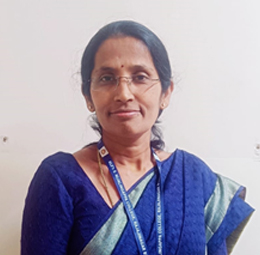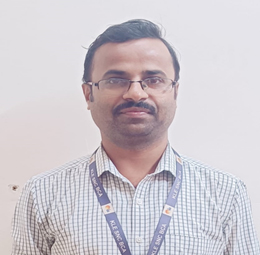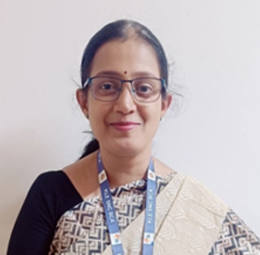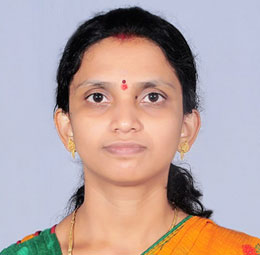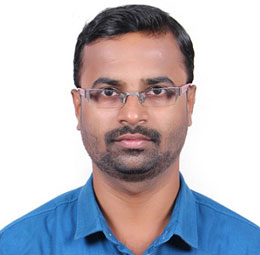Computer Applications (MCA)
- OVER VIEW
- PROGRAMMES
- CURRICULUM
- INFRASTRUCTURE
- FACULTY PROFILE
- STUDENTS PROFILE
- POs, Cos and PSOs
- CALENDAR OF ACADEMIC EVENTS
- RESEARCH
- BEST PRACTICES
- MANDATORY DISCLOSURE
The KLEMCA was established in the year 2000. It was inaugurated by Shri. Siddappa, Vice Chancellor, Bangalore University, Bangalore on 24-01-2000.The Course is approved by AICTE and affiliated to Bangalore University having an intake capacity of 40 students. 50% of the intake is through government quota(PGCET) and the remaining 50% through KMAT. The duration of the study is four semester spanning a period of two years.
Objective:
“Empowering through Quality Technical education and assisting the students to be self-reliant, self-confident, self-assured emerging individuals who can set the path towards “dreams to reality”.
Mission:
An understanding and appreciation of the vital and pervasive role of information as an essential input in all developmental activities. A thorough insight into all techniques of information handling with special emphasis on application of information technology.
Eligibility Criteria
- Bachelor’s degree with 50% marks
- Admission is entrance based (PGCET or KMAT entrance exam mandatory)
- Candidates should have studied Mathematics / Statistics / Computer Science / Business Mathematics / Business Statistics at 10+2 stage or at graduation level.
Procedure:
- Application forms and prospectus are to be obtained from the college office on payment of the prescribed fee of Rs.300/- by DD favoring principal KLE MCA College, payable at Bangalore.
- The duly filled-in application form must be submitted to the college office with a Photostat copy of marks statement of qualifying examination before the stipulated date.
- The belated and incomplete application forms will not be considered.
- Admissions are made subject to the approval of Bangalore University.
- Admission will be made according to the Government reservation policy.
- The list of selected candidates will be notified on the College notice board.
- The selected candidates must meet the admission committee with original documents along with 2 Photostat copies of each of the following:
- Marks Statement
- Transfer Certificate (T.C)
- Migration Certificate (for non-Karnataka candidates only)
- Date of Birth Certificate
- Caste/Category Certificate
- Photographs –4 passport size
- A Copy of the income/ salary certificate (For SC/ST students only)
- The candidates cannot claim the admission as a matter of right by buying the application form.
When to apply:
The admission process commences during the month of July of every year and extends till the last date of admission as per the university regulations or availability of seats, whichever is earlier.
- New UG Syllabus As Per NEP 2020 Effective From 2021 PG CBCS Syllabus
- MCA Syllabus 2020-21
- 2 year MCA Programme Syllabus from 2020-21 onwards
- 3 year MCA Programme Syllabus 2020-21
To meet the online technical educational needs, the department is facilitated with state-of-the-art infrastructure which includes,
- Fully enabled Wi-Fi campus
- Digital Library
- Modern Auditorium
- Modern Audio-Visual Aids
- Industry component Laboratories
- e-Lecture halls
Students Profile:
| Year | Total Number of Intake | Total Number of Admissions taken |
| 2018-19 | 40 | 24 |
| 2019-20 | 40 | 11 |
| 2020-21 | 40 | 40 |
| 2021-22 | 40 | 39 |
| 2022-23 | 40 | 39 |
Academic Results:
| Year | Pass % | First class with Distinction% |
| 2016-17 | 100 | 100 |
| 2017-18 | 100 | 100 |
| 2018-19 | 97.22 | 97.22 |
University Ranks
| Sl. No | Department | Name of the student and Register Number | Rank | International/ State / university | Photo |
| 01 | MCA | SARANYA V (MC190810) | I | Bengaluru City University 2022 |  |
| 02 | MCA | PRIYANKA PATIL (MC190809) | II | Bengaluru City University 2022 |  |
| 03 | MCA | VARNITHA D (MC190812) | V | Bengaluru City University 2022 |  |
| 04 | MCA | PAVITHRA M (MC200830) | I | Bengaluru City University 2022 |  |
| 05 | MCA | ARCHANA J (MC200803) | IV | Bengaluru City University 2022 |  |
| 06 | MCA | SUSHMA S R (MC200830) | V | Bengaluru City University 2022 |  |
PROGRAM OUTCOMES (POs)
PO 1 – Engineering knowledge: Apply the knowledge of mathematics, science, engineering fundamentals, and an engineering specialization to the solution of computer science engineering problems.
PO 2 – Problem analysis: Identify, formulate, review research literature, and analyze complex engineering problems reaching substantiated conclusions using first principles of mathematics, natural sciences, and engineering sciences.
PO 3 – Design/development of solutions: Design solutions for complex engineering problems and design system components or processes that meet the specified needs with appropriate consideration for the public health and safety, and the cultural, societal, and environmental considerations.
PO 4 – Conduct investigations of complex problems: Use research-based knowledge and research methods including design of experiments, analysis and interpretation of data, and synthesis of the information to provide valid conclusions.
PO 5 – Modern tool usage: Create, select, and apply appropriate techniques, resources, and modern engineering and IT tools including prediction and modeling to complex engineering activities with an understanding of the limitations.
PO 6 – The engineer and society: Apply reasoning informed by the contextual knowledge to assess societal, health, safety, legal and cultural issues and the consequent responsibilities relevant to the professional engineering practice.
PO 7 – Environment and sustainability: Understand the impact of the professional engineering solutions in societal and environmental contexts, and demonstrate the knowledge of, and need for sustainable development.
PO 8 – Ethics: Apply ethical principles and commit to professional ethics and responsibilities and norms of the engineering practice.
PO 9 – Individual and team work: Function effectively as an individual, and as a member or leader in diverse teams, and in multidisciplinary settings.
PO 10 – Communication: Communicate effectively on complex engineering activities with the engineering community and with society at large, such as, being able to comprehend and write effective reports and design documentation, make effective presentations, and give and receive clear instructions.
PO 11 – Project management and finance: Demonstrate knowledge and understanding of the engineering and management principles and apply these to one’s own work, as a member and leader in a team, to manage projects and in multidisciplinary environments.
PO 12 – Life-long learning: Recognize the need for, and have the preparation and ability to engage in independent and life-long learning in the broadest context of technological change
Course Outcome
| 1 | Mathematics |
|
| 2 | Computer Organization and Architecture |
|
| 3. | Programming |
|
| 4 | Operating Systems |
|
| 5 | Data Structures |
|
| 6 | Computer Networks |
|
| 7 | Software Engineering |
|
| 8 | Data Base Management System |
|
| 9 | Artificial Intelligence |
|
| 10 | Analysis and Design of Algorithms |
|
Program Specific Outcome (Objectives) – PSOs
PSO 1 – An ability to understand the core concepts of computer science and engineering and to enrich problem solving skills to analyze, design and implement software and hardware based systems of varying complexity.
PSO 2 – To interpret real-time problems with analytical skills and to arrive at cost effective and optimal solution using advanced tools and techniques.
PSO 3 – An understanding of social awareness and professional ethics with practical proficiency in the broad area of programming concepts by lifelong learning to inculcate employment and entrepreneurship skills.
PSO 4 – Ability to pursue careers in IT industry/ consultancy/ research and development, teaching and allied areas related to computer science.
PSO 5 – Comprehend, explore and build up computer programs in the areas allied to Algorithms, System Software, Multimedia, Web Design and Big Data Analytics for efficient design of computer-based systems of varying complexity.
MCA CALENDER OF EVENTS FOR ODD SEMESTER (2023-24)
SL.NO. | MONTH | EVENT |
1 | January | 18th – Commencement of II (III sem) Year MCA Classes 30th – Commencement of I (I sem) Year MCA Classes 31st – seminar/webinar for II Year |
2 | February | 1st – Aptitude Training Programme for II Year 20th – Pre-Placement Training for II Year |
3 | March |
11th ,12th ,13th – I internals for III sem MCA 16th -Pre-Placement Training for II Year 18th ,19th ,20th – I internals for I sem MCA 31st – seminar/webinar for I Year |
4 | April |
6th – Aptitude Training Programme for II Year 15th ,16th ,17th – II internals for III sem MCA 22nd ,23rd,24th – II internals for I sem MCA 28th – seminar/webinar for I Year
|
5 | May | 10th – Last Working Day for III Sem MCA 28th – Commencement of Practical and Theory Examinations III sem MCA 30th – Last Working Day for I Sem MCA |
6 | June | 25th – Commencement of Practical and Theory Examinations for I sem MCA |
MINOR RESEARCH PROJECT on “Overcoming the Societal Challenges in implementing e-Governance “ by Prof. Parvati N. Angadi
| Title of the Program | Topic name |
Online Workshop (December 2019) | AWS cloud literacy |
| VSphere certification course by VMware. |
A lockdown initiative had been taken by the MCA Department by participating in LEARNTHON 2020 and conducting Webinar series on “Technology for Future” by ICT Academy and the details are as follows:
| Topic name | Date |
| Robotic Process Automation: Basics and Beyond | 10th April 2020 |
| Introduction to VMWare Cloud | 11th April 2020 |
| Accelerating Experiential Learning in Engineering | 13th April 2020 |
| The Future of Making | 14th April 2020 |
| Introduction to AI & ML | 15th April 2020 |
| Cybersecurity Essentials | 16th April 2020 |
| Design Thinking – Preparing the mind for Disruption | 17th April 2020 |
| Digital Transformation in Enterprise | 18th April 2020 |
STRIDE Component – 1:
| Name of the Activity | Title of the activity | Expected Date of the Activity | Grants Applied |
| Workshop | “Drones for monitoring WildLife and detecting illegal logging” | The second week October 2021 | Rs. 1,70,000 |
STRIDE Component – 2: Minor Research Project
| Title of the project | Name of Principal Investigator and Co-Investigator | Grants Applied |
| “The role of Technology-enabled Education in resolving Unemployability in India” | Principal Investigator: Dr. Parvati N Angadi
Co-Investigator: Ms. Sharada C Ms. Bharathi N | 3.70 Lakhs |
Publications
- Virtual Intelligence and Component Security in Cloud Infrastructure” at SJES College of Management Studies in International Conference
- “Wireless Security and Technical Challenges” presented at S.E.A College Science Commerce and Arts in UGC Sponsored National Conference
- “E-Governance: Bridging the Digital divide” – ISBN:978-1-5136-1658-2 presented at Adarsh Institute of Management and Information Technology, Bangalore in International Conference on “Science and Technology for National Development – SMAC: An Emerging tool – 2016”
- “Challenges for e–Governance in India” – ISBN: 978-93-84494-72-8 presented at KLE Society’s S Nijalingappa College Bangalore in UGC Sponsored National Conference on “Corporate Governance and CSR under new Companies ACT,2013”
- “E-Governance: Opportunities and Challenges – ISBN: 978-93-85629-14-3 presented at Basaweshwara College of Commerce, Arts and Science, Bangalore in UGC Sponsored National Conference on “Evolving Trends and Challenges in Science Education and Research – an Exploration”.
- “Bridging the Digital divide in India: Challenges and Opportunities” presented at Surana College, Bangalore in Two days Interdisciplinary National Conference on “Digital Transformation”
- “A novel framework for efficient identification of brain cancer region from brain MRI” an International Journal of Emerging Technology and Advanced Engineering www.ijetae.com (ISSN 2250-2459, ISO 9001:2008 Certified Journal, Volume 8, Issue 1, January 2018)
- “Efficient Early Detection of Breast Cancer Detection using ANN and DWT” Communications on Applied Electronics, (CAE) Foundation of Computer Science FCS, Newyork, USA ISSN: 2394-4714 Volume 7–No. 13, F 2018
- “A neural classifier approach for the prediction of optimal breast cancer attributes” an International Journal of Current Research ISSN: 0975-833X
- “Automatic mass classification of breast cancer using ANN” International Journal of Current Research ISSN: 0975-833X
- “Cumulative Techniques for Early Detection of Breast Cancer: A Review” International Journal of Emerging Technologies in Computational and Applied Sciences (IJETCAS) ISSN (Print): 2279-0047 ISSN (Online): 2279-0055.
- “DODOR: Dual Optimization for Detection of Oncological Region in Radiological Image” an IEEE Journal 978-1-4673-9563-2/15/$31.00 ©2015 IEEE
- “Network Security” at Nehru Arts and Science College, Coimbatore at National Level Conference.
- “Strategic Value Creation in Higher Education” at Malleswaram ladies Association, First Grade College for Women in National Level Conference.
- “Automatic mass classification of breast Cancer using ANN” at Sun College of Engineering, Nagercoil, Tamil Nadu in International Level Conference.
- “Role of Mathematics and Software Tools in Image Capturing Digital Technologies” at Basaveshwara College of Commerce, Arts, and Science, Bangalore in National Level Conference.
- “Review on PET Molecular Imaging Technology in the Field of Nanotechnology” at Department of Bio-Technology, KLESNC Bangalore in National Level Conference
- “Comparative Analysis on Magnetic Strip & RFID digital card technologies ” at Adarsh Institute of Management and Information Technology Bangalore in International Level Conference
KLESNC MCA believes in incorporating the “Do it Yourself” (DIY) spirit among its students through Project Based Learning (PBL). Project Based Learning is an educational approach that emphasizes learning through hands-on projects and real-world experiences.

